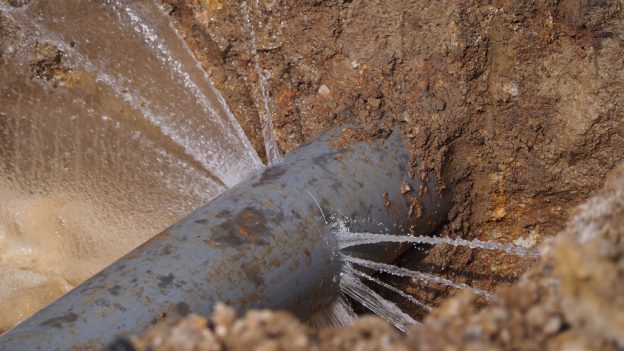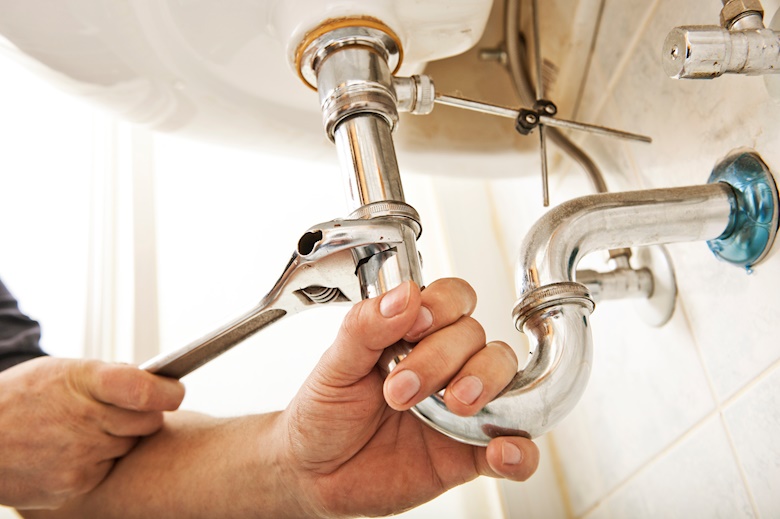The 5 Reiterative Water Leak Factors
The 5 Reiterative Water Leak Factors
Blog Article
How do you really feel when it comes to Reasons for Water Heater Leaks?

"Be careful of little costs. A tiny leakage will sink an excellent ship." - Benjamin Franklin.
He could not have been much more best since water leaks in our houses lead to a waste of sources, boosting our water bills. This increase could seem negligible at first, it can lead to significant expenses that can break your bank. Apart from a rise in bills, water leakages also create unwanted natural growth, structural damage, and also even electrical threats.
If you have a water leak isn't always simple due to being incapable to see most of the pipework in your home, figuring out. If you have had an increase in your water bills recently, observed water stains on ceilings and wall surfaces, scented lousy odor, and so on. You might intend to take into consideration asking for plumbing services to get it had a look at.
There are numerous sources of water leakages, as well as we have compiled the usual reasons below. Examine to see if you have actually had associated concerns in your house lately.
Blocked drains
Food fragments, dust, and also oil can cause clogged drains and block the passage of water in and out of your sink. Boosted stress within the seamless gutters can finish as well as cause an overflow up splitting or breaking pipelines if undealt with. To stay clear of clogged up drains pipes in your house, we encourage you to prevent pouring particles down the drain and also regular cleansing of sinks.
High water stress
You discovered your home water stress is higher than common but after that, why should you care? It's out of your control.
It would certainly be best if you cared since your average water stress ought to be 60 Psi (per square inch) and also although your home's plumbing system is made to hold up against 80 Psi. A boost in water stress can put a strain on your home pipes and also result in cracks, or even worse, ruptured pipelines. If you ever before notice that your home water pressure is higher than usual, contact a professional regarding managing it.
Rust
As your pipework ages, it obtains weak as well as much more prone to rust after the frequent flow of water with them, which can eat away at pipes and trigger fractures. A visible sign of corrosion in your house plumbing system is staining as well as although this might be difficult to discover because of most pipelines hidden away. Once they are old to make sure a sound plumbing system, we advise doing a constant examination every couple of years and also change pipelines
Deteriorated pipeline joints
Pipe joints are the components of our plumbing system where the pipes link. It is crucial to keep in mind that even though pipelines are created to endure stress and last for a while, they weren't made to last for life; as a result, they would deteriorate over time. A typical sign of harmed pipe joints is too much noise from taps.
Broken seals
One more cause of water leakages in residences is damaged seals of home devices that use water, e.g., a dishwashing machine. When such home appliances are installed, seals are set up around water connectors for very easy passage of water via the device. A busted seal can cause leak of water when in usage.
With little or no understanding of plumbing, understanding your home's plumbing system sufficient to deal with some of these issues (without repercussion) can be a headache. Connect with plumbing professionals in Pittsburgh, Providence, Rochester, and environ today, and also they'll make those concerns vanish.
He couldn't have actually been more appropriate since water leaks in our residences result in a waste of sources, enhancing our water costs. If you have had a boost in your water bills lately, noticed water spots on walls as well as ceilings, scented lousy smell, etc. A rise in water pressure can put a pressure on your home pipelines and also lead to cracks, or even worse, burst pipes. An additional reason of water leaks in residences is damaged seals of home appliances that use water, e.g., a dishwashing machine. When such appliances are mounted, seals are installed around water adapters for simple flow of water via the machine.
5 TIPS IN DETECTING A WATER LEAK IN YOUR HOUSE
Water leaks can be hard to find in your home, yet they can be so common. We rely on water every day in our home, which is why a leak can cause big problems. By detecting them early, you can save money and further damage, getting the problem fixed as soon as possible. Here are 5 tips to help you detect a water leak in your home, so you can contact a plumber straight away and get the issue sorted.
Check your water meter
Many people underestimate the value of the water meter in their home. It can be one of the best ways to tell if you have a leak early on, so you can get on top of it before issues start arising. Start by turning off all the water in your home: taps, washing machine, dishwasher, etc. Now take a look at the meter – if it’s still changing with everything turned off, it’s likely you have a fast-flowing leak that you need to get on top of straight away. If nothing changes, then leave your meter for an hour or two and come back to it. Did it change in this time? It’s likely you have a slower leak, which isn’t as urgent but still handy to get fixed so it doesn’t become a bigger problem.
Keep an eye on your bill
Another good way to detect a leak in your home is by keeping an eye on your water bill. It helps if you have a past bill from the same period of time. You can compare like for like and determine whether your water usage has increased significantly. If it has, there may be a leak in your system that you haven’t picked up before. A professional plumber can check through all of your pipes and determine where it is coming from.
Look for damage
If you have a leak inside your home, you will notice damage over time. Take a look at your showers and bathtubs and note whether any of the tiles surrounding the area seem to be discoloured or damaged in any way. There may be water stains, mould or peeling material that has resulted from a build up of moisture over time. Make sure you take a look under sinks at the back of cupboards that don’t get accessed regularly. This is where damage can go unnoticed and build up over periods of time.

We are very intrigued by Where to Find Water Leaks and I really hope you enjoyed reading the entire blog entry. Sharing is caring. You never know, you could be helping someone out. Kudos for your time. Come back soon.
Click Here Report this page